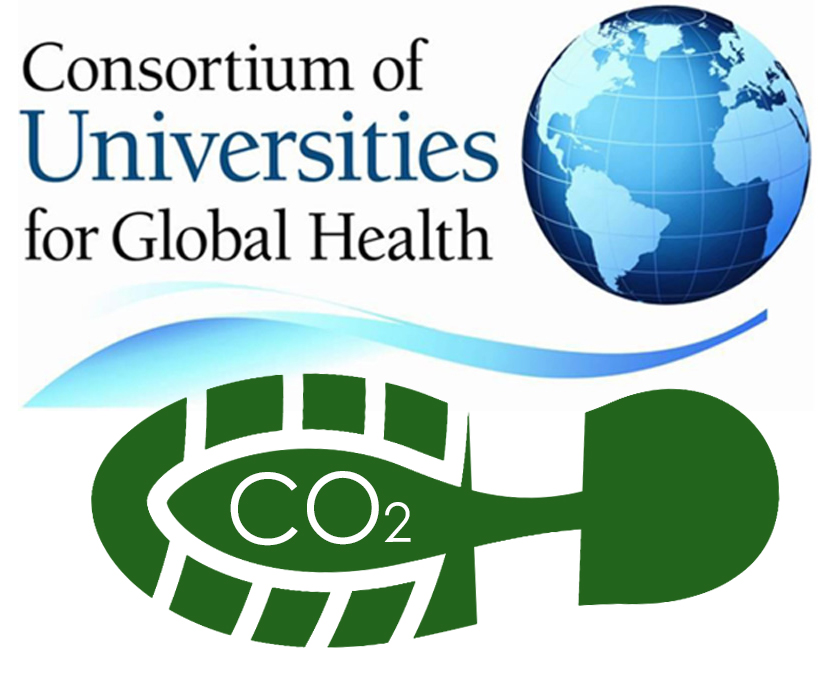With its travel restrictions and moratoriums on in-person gatherings, the pandemic put a damper on professional conferences, forcing many to go online.

But U-M researchers examining data from the 2021 Consortium of Universities for Global Health (CUGH) event found silver linings in the move to virtual, documenting record participation and drastically reduced environmental impacts. Detailed in two recent publications, their work could inform future sessions for CUGH, the world’s largest academic global health conference.
“While we miss the networking and relationships that arise through in-person meetings, the online format provided access to data that just isn’t knowable in a traditional format. We were able to get a very clear picture of our attendees’ interests and engagement,” said Joseph Kolars, UMMS Senior Associate Dean for Education and Global Initiatives.
Kolars is a co-author of a paper appearing this spring in Annals of Global Health that delves into CUGH’s shift to virtual for its 2021 conference, initially slated to be held in Houston. In addition to the typical registration and attendee feedback information, conference organizers were able to mine real-time engagement data through the event’s content management system.
Just over 1,900 people registered for the conference – the most in CUGH history – including the highest number of learners (i.e., students, residents or fellows) and the highest number of registrants from LMIC settings. From the content management platform, organizers were able to monitor participation across the conference’s 100-plus individual event offerings, including whether attendees remained logged in for the duration of each session.
Kolars and his co-authors, CUGH Executive Director Keith Martin and former Global REACH Program Manager Melissa Li, note that the granular nature of the data provided new insights, not only about which topics attracted the most participants, but also which ones held attendees’ attention the longest:
Track 2: Covid-19, Emerging Infectious Diseases, & Other Communicable Diseases attracted the most participants at 413 attendees/session relative to the least attractive Track 3: Politics, Law, Corruption, Human Rights, Governance, Diplomacy, Strengthening Public Institutions at 146 attendees/session. On the other hand, Track 2 engaged attendees for less than 40% of the sessions while Track 3 kept attendees for over 70% of the session. – Li et al.
“This is valuable information that can help with the planning of future sessions so as to tailor them to the interest of participants,” Kolars said.
A second paper, also co-authored by Kolars and led by U-M Professor of Internal Medicine Brent Williams and medical student Jaqueline Lewy, explores the ancillary environmental benefits of moving CUGH online in 2021. Using registration information on the conference’s’ 1,900 attendees, which included home or institutional addresses, the team estimated that the virtual format prevented some 2,436 metric tons of travel-related CO2 emissions.
“To put these findings in perspective, this is the emissions equivalent of 13.5 railcars of coal burned, 294 US homes’ energy use for one year, or 274,988 gal of gasoline consumed,” the researchers note.
The vast majority of the offset emissions were the result of deferred airline travel for those attendees living more than 300 miles from Houston, the would-be host city. Altogether, those participants would have logged 10.6 million round-trip miles to attend an in-person event.
“Due to the urgency of the climate change crisis, healthcare organizations must examine their own real, calculable impact on planetary health, not just their aspirations,” the researchers noted. “Calculating the previously unquantified carbon footprint of an international in-person conference format is essential to achieving that aim, even—and especially—if the primary goal of the conference is to better human health.”
Both papers were published as CUGH prepares for its 2023 conference. Taking place April 14-16 in Washington D.C., it will mark CUGH’s first in-person conference since 2019, although a host of pre-conference satellite sessions will now be offered virtually. Given the success of the virtual meetings, CUGH leaders are exploring hybrid models for future sessions as well.
“We all know the benefits of traditional, in-person meetings. The past few years have demonstrated the value of virtual gatherings, too,” Kolars. “The question moving forward is, can these formats be combined in a way that is worthwhile to our members and also sustainable – both for the organization and, importantly, for the environment.”
